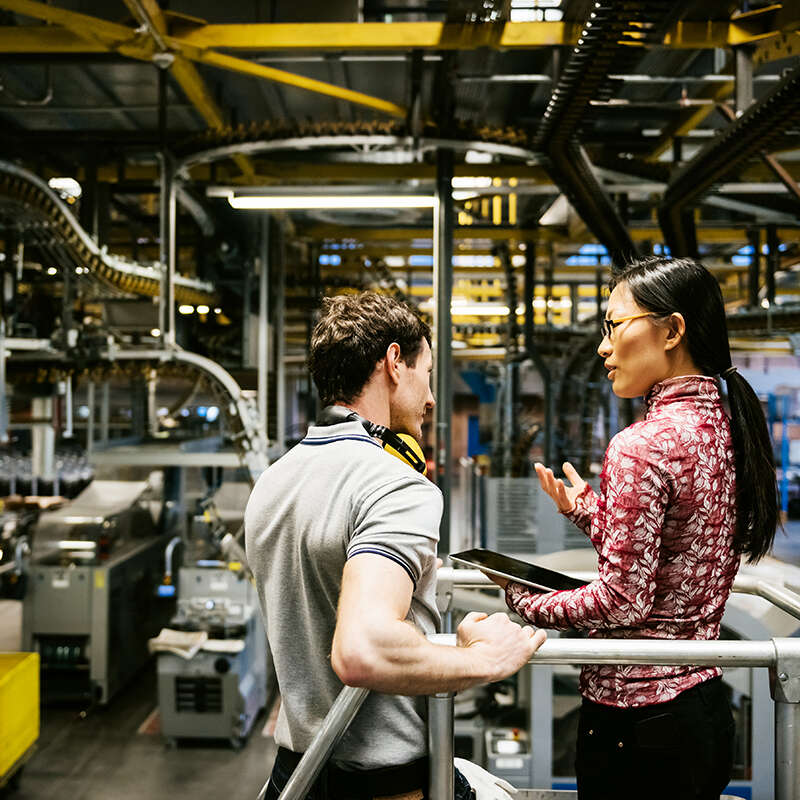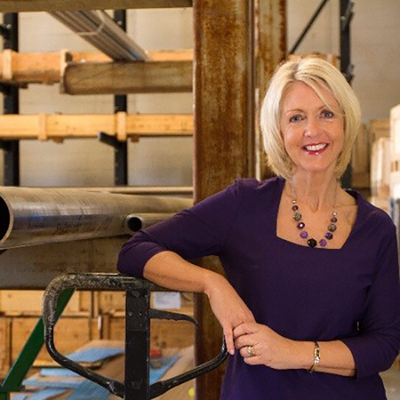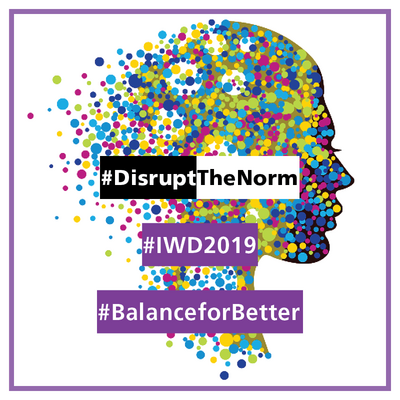Jan Ward CBE, Founder of Corrotherm, talks about leading a ‘people friendly’ business, developing ‘unknown skills’ and how access to finance hampers UK innovation.

Jan Ward CBE is Founder of Corrotherm International Ltd1, Non-Executive Chair of Energy and Utility Skills2, NED at Energy Industries Council (EIC)3 and Red Penguin Associates Ltd4 and Chair of Millers Oils5. In 2009 Jan was named the UK’s most inspirational female entrepreneur and in 2014 was made CBE in recognition of her success in guiding and promoting innovative British businesses.
Jan talks to Boyden’s Claire Lauder about being a female founder in industry and running parallel pipelines to develop business and talent.
Lauder: There is a widely-quoted statistic that 80 percent of skills required in 2030 are not known today. So how do you identify the right person to hire?
Ward: I have an open attitude when I recruit people because I don’t recruit for just one role. One of the great advantages of a smaller business is that you can give people a much wider range of experience, so you are looking at the person, their abilities and potential, not just their skills.
For example at Corrotherm, the MD of our UK office came in as an IT graduate, our Operations manager was working in hospitality and I recently recruited a sports graduate who I could tell would be a really great salesman.
Lauder: So what infrastructure do you have for developing people?
Ward: At Corrotherm and Millers Oils people go around the business before they start the job. It’s how I was trained; before I started my job I worked in every department so I knew how the company worked. The time you invest is important because it gives people lots of experience in what goes on. They understand the effect departments have on each other; that if you get something wrong, someone else has to pick it up down the line.
This takes three months, followed by more in-depth training in a specific area that meets an individual’s interests. In personal development reviews I find out what people like about their job and where that will take us, because you will develop your best skills in the area you most enjoy.
Lauder: You say that Corrothermis a very person-friendly business. Do you have a formal buddy system or is that just the culture you have built?
Ward: Having talked to everybody in the company, they trust us to look after them. If anyone has a problem, they have someone to talk to and we do whatever we can to help. For example, we have paid for people to go on honeymoon, provided loans for a house deposit, helped people to buy cars and we have a bike scheme. So it’s monetary things as well as being flexible if someone has extra responsibilities at home. It’s being really conscious of people’s issues and enabling them to ask for help.
Everyone connects with someone in the business. We don’t formalise a buddy system because you can get the connection completely wrong, so we let people gravitate to each other.
“I don’t like people standing still for too long, unless they want to”
Lauder: In your management and leadership teams did you hire people into this level or did you nurture them internally?
Ward: About seventy percent came through from the beginning and we have another layer of people we brought in at a certain level to develop. So it’s a combination. I don’t like people standing still for too long, unless they want to.
Lauder: An EEF report on ‘Reinventing the Manufacturing Workforce6 states that sixty-four percent of UK manufacturers have no workforce plan, impacting profits and training. What is your opinion on that?
Ward: I have quite strong views here because when the government decided twenty or thirty years ago it was their responsibility to train your staff, I never agreed with that! Employers are responsible for training their staff. The government is responsible for giving you the ‘stock’ and the infrastructure to work with.
Lauder: Given the sector is struggling to access enough talent, isn’t reinventing the workplace more important than reinventing the workforce?
Ward: Yes, and I think a lot of us struggle to access talent. You can have the most fantastic, automated equipment, but if you do not have the right people, nothing is going to save you. If you have got only four people in a ten square kilometre factory, those people have got to be really good at what they do. 3D printing is a good example and the biggest issue is finding the people to build the files to transfer over to 3D printing. Where are the skills to run those machines?
Lauder: Are graduates not coming through the pipeline for this?
Ward: There is such a disconnect between skills and education and the system lags behind in technology. For instance, when you hire someone with a mechanical engineering qualification they are not prepared for what is now an IT environment. So the whole infrastructure needs to change. The education sector needs employers to get more involved, but how do we find the time? And how do the schools find time? There needs to be more connectivity, facilitated by a third party.
Lauder: In your view, what are the biggest differences in industry today, versus fifteen years ago?
Ward: There are far more positives today. We have realised in the UK that we are a low volume, high value manufacturer. Fifteen years ago we were still trying to be a ‘far Eastern manufacturer,’ competing in the wrong place, which meant we lost a lot of manufacturers. The running of factories today is far better. Proper IT infrastructure has improved efficiency and stock management, while people are protected by formal health and safety policies.
“Today, funding is all about remote credit teams who know nothing about your business and couldn’t possibly make a judgement”
On the down side, fifteen years ago the banks were much more receptive to manufacturers, despite the UK wanting to become a service-based economy. The banks had much better connectivity with their customers; you did your R&D, went to the bank and secured what you needed to make it fly. Manufacturing leaders therefore took more risk, which was a good thing. Today, it is all about remote credit teams who know nothing about your business and couldn’t possibly make a judgement.
Lauder: Is access to finance hampering innovation in the UK?
Ward: Yes, definitely. There is cash there, but that’s not always known and smaller businesses struggle to apply for it. For example, we have applied for innovation funding and also LEP funding (Local Enterprise Partnership). But the amount of ‘after service’ you have to do for that funding stream and the whole administration of it is absolutely huge.
“Banks shun manufacturing at their peril, because we are the new tech companies”
A large number of people don’t know they can access government funding through their LEP. The bigger firms are applying, rather than smaller businesses for whom the funding was intended. So it is much harder to get funding now. Banks shun manufacturing at their peril, because we are the new tech companies.
Lauder: Female entrepreneurs say they, particularly, have great difficulty getting investment. How can we re-educate the market?
Ward: There is an unconscious bias in the finance industry, where predominantly male executives expect leaders of manufacturing companies to be male. There are some shining women in finance of course, but few are in leadership roles, so we have a prevailing disconnect between the finance industry and female entrepreneurs.
Male financiers constantly look around the woman to see the man behind them. I get it all the time with Corrotherm: “Is this your husband’s business?” Or “Did you inherit your father’s business?” I think it would be different if I was leading a consumer goods or cosmetics company.
“We have had some really tough times…I always know it will work out in the end. I do my best work when I am up against it”
Lauder: So how did Corrotherm come about?
Ward: I had been in the steel industry for about eighteen years. In the company I worked for, I opened up the Middle East market and ended up running three separate companies within the group. Then it got to the point where I had built up an exports and a projects business for three different companies with very limited resources, practically from scratch. So when my team were made redundant, I thought, “I’ve done it for three other people, I’m going to do it for myself now”.
So in 1992 I set up Corrotherm. I hired three former colleagues and gave them shares, because I couldn’t pay them. I sold my car, wrote a wonderful, detailed business plan and went to the bank. At the time, business plans were not common, because banks didn’t usually ask for one. I wrote a plan because I wanted to know what our total aim was. The bank used it later as an example, giving it to people saying, “This is what your business plan should look like”. So I was really quite proud of that!
Lauder: Did you ever have any doubts along the way?
Ward: We have had some really tough times. I am very resilient, but my partners are much more risk-averse than me, which makes for a good balance. We’ve been running this business for twenty-seven years now and I always know it will work out in the end. I do my best work when I am up against it.
For more information about Corrotherm International Ltd and Millers Oils Ltd,
please visit: https://www.corrotherm.co.uk/ | http://www.millersoils.co.uk/
1 Corrotherm is a stockist and supplier of nickel and nickel alloy seamless pipe.
2 Energy & Utility Skills bring industry leaders together to identify and address the skills challenges our sector faces.
3 EIC is the leading trade association for companies that supply goods and services to the energy industries worldwide.
4 Red Penguin is an independent multidisciplinary Marine and Cable Engineering consultancy to the maritime and offshore industries.
5 Millers Oils is an advanced lubricants, oils and fuel additives business established in 1887.
6 https://www.sig-uk.org/wp-content/uploads/2019/02/EEF-Reinventing-the-Manufacturing-Workforce-Made-UK.pdf




